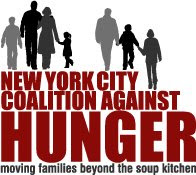As Congress rallies for bipartisan votes to pass the Farm Bill and, if so, override of a Presidential veto, the Bush administration continues to display a fundamental misunderstanding of the bill’s nutrition title and the inefficiency of nutrition provisions under the 2002 Farm Bill. The current bill would increase nutrition spending by $10.3 billion over 10 years, while increasing the standard income deduction for food stamp eligibility to more fully account for current inflation for the first time since 1996. The bill would also index benefits to inflation rates and raise the minimum monthly benefit from $10 to $14. Despite these desperately-needed reforms, in a May 9 press conference, Secretary of Agriculture Ed Schafer questioned whether increased food stamp access was intended to make the government “feel good about taking care of people,” asking, “in a time when we have a fairly decent sized percentage of people who are eligible for the food stamp program and are not participating…why would we expand eligibility to the program?” Schafer fails to note that food stamp enrollment has increased in response to the flailing economy, but that the federal government still needs to address the administrative barriers to access that have prevented eligible families and individuals from receiving benefits. A successful veto could result in a two-year extension of the 2002 Farm Bill, which would accelerate the current food crisis and leave millions of Americans with insufficient benefits. It is extremely troubling that, as the food costs soar and the gap between rich and poor Americans increases daily, Schafer is asking “do we really have a problem here?”
Providing news and commentary on issues facing the City's anti-hunger community

The New York City Coalition Against Hunger represents New York City’s over 1,200 soup kitchens and food pantries and the 1.3 million low income New Yorkers who are forced to use them. The Coalition works to meet the immediate food needs of low-income New Yorkers and enact innovative solutions to help them move “beyond the soup kitchen” to self-sufficiency.
Blog Archive
-
▼
2008
(116)
-
▼
May
(12)
- Fast Food Tax Breaks Conflict with City Health Ini...
- Economic Crisis Fuels Twin Threats of Hunger and O...
- What's At Stake
- Congress Set to Re-Play Veto Override
- Hunger and Abundance
- Rising Food Costs Pose Increased Threat to Seniors...
- House Passes Farm Bill With Veto Override in Sight
- AG Secretary Fumbles on Farm Bill Nutrition Title
- Executive Director Berg Calls on City to Increase ...
- Seven Months Later, Farm Bill Still Faces Veto
- Faced with Supermarket Shortages, City and Communi...
- Court Mandates HRA Compliance with Food Stamp Proc...
-
▼
May
(12)
No comments:
Post a Comment